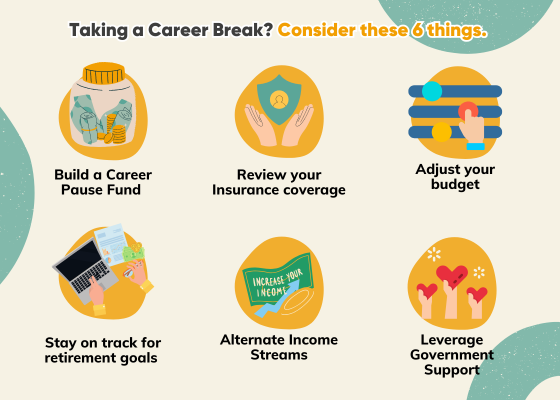Becoming a parent for the first time is a wonderful experience, but it also comes with many decisions—one of the most important being how to care for your newborn. In Singapore, maternity leave typically lasts for 16 weeks (4 months), and after that, both parents need to explore and weigh different caregiving options.
Here are the common solutions most first-time parents consider
1. Becoming a Stay-at-Home Parent
One option is for one of the parents to become a stay-at-home mum or dad. This decision often hinges on a family’s financial situation, personal preference, and career considerations.
While staying at home allows you to be fully involved in your baby’s early development, it can mean a significant change in household income. However, for many parents, the comfort of knowing that the best possible care is being provided directly by a parent outweighs the financial sacrifice.
Families opting for this route need to carefully assess the trade-offs between caregiving and long-term financial goals, such as savings, retirement planning, and education funds.
2. Grandparent Care
Many Singaporean families turn to their own parents for help with childcare. If grandparents are willing and able to assist, this option can be both cost-effective and comforting, as it keeps the baby within the family.
However, it’s important to consider the physical demands on elderly caregivers and ensure they are up to the task of full-time care. Additionally, setting clear boundaries and expectations can help avoid tension when different generations have varying approaches to baby care.
3. Enrolling in Infant Care (As early as 2 to 18 months)
Infant care centers are another popular option for parents who need professional caregiving services. In Singapore, the cost of infant care can vary significantly:
- Subsidised Infant Care:
At government-approved centers, costs typically range around $700 per month after government subsidies.
- Private Infant Care:
If parents prefer private infant care, fees can range from $2,000 to $3,000 per month.
Infant care centers provide structured programs, a safe environment, and trained staff, which can give parents peace of mind. However, waiting lists for popular centers can be long, so it’s best to plan ahead and secure a spot early if this is your preferred option.
Use the Life@SG app to search for the nearest infantcare.
4. Hiring a Domestic Helper (typically 2-year contract)
Some families opt to hire a live-in domestic helper to assist with childcare. This option can offer flexibility as the helper is usually able to handle both baby care and household chores. The cost of hiring a helper typically includes:
- Monthly Salary: Ranges from $600 to $750 depending on the helper’s experience and nationality.
- Levy: There is a monthly levy of $60 for families with young children.
- Agency Fees: When hiring a helper, expect to pay between $2,000 and $3,000 in agency fees for processing and paperwork.
While having a domestic helper provides convenience, it’s essential to take time to properly vet the helper and ensure she has the right experience in newborn care.
5. Nanny Care (1st to first 2 months)
Another option for the first few months after birth is to hire a nanny. Nannies typically provide short-term care, helping parents adjust during the baby’s first month or two.
- Costs ranges from $2,800 to $4,000/mth, depending on experience
- If sourced through agency, it may cost up to $4,500/mth
While this can be a practical solution for immediate support, it may not be sustainable for long-term care, as it often comes at a higher cost with less structured availability compared to infant care centers or domestic helpers.
Summary
Choosing the right childcare option for your newborn is a personal decision that depends on factors such as finances, family dynamics, and your baby’s needs. Whether you decide to be a stay-at-home parent, rely on grandparents, enroll your child in infant care, or hire a domestic helper, it’s important to plan and choose the option that aligns best with your family’s lifestyle and financial situation.




